Search Results
Search
Filter results
Advanced Filters
Your search returned 280 Solutions
-
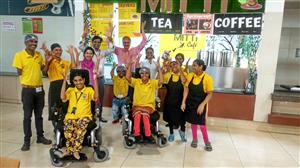
Fast-growing café chain with a majority of employees with disabilities
Since 2017, Mitti Café has been providing hospitality training and employment opportunities in accessible cafés established on the premises of educational institutions or private-sector companies. As of 2020 there are 12 Mitti Cafés, which are managed and staffed entirely by adults with disabilities.
Mitti Cafe, MITTI Café, India -
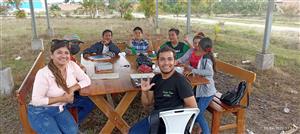
Training family groups in remote Amazon villages to use sign language and to replicate it
Paz y Esperanza, Peru: Offers courses in Peruvian Sign Language and Spanish for families with deaf children in the Amazon region. In 2023, 60 participants, including both children and adults.
Peruvian Sign Language for disadvantaged deaf people, Peru -
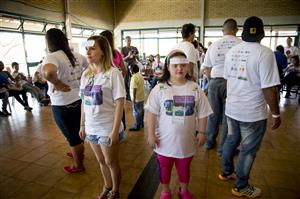
Training Young Leaders in Accessibility and Inclusion
Through its Accessibility Promotion Agents programme Escola de Gente trains young people with and without disabilities living in favelas as mediators for the rights of people with disabilities. The certified training provides skills that also increase their chances of finding employment. Between 2011 and 2017, 252 young people were trained.
Escola de Gente - Communication in inclusion, Accessibility Promotion Agents, Brazil -
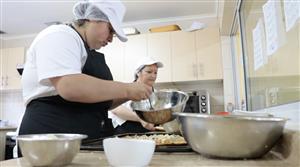
National state-run training and job-placement programme for people with disabilities
The Format for Work, Disability Line programme offers people with disabilities theoretical and practical vocational training and then placement in dependent employment. The programme was launched in 2014. Between 2015 and by 2020 there were a total of 9,929 users, of whom 7,995 completed their training.
SCENE Chile - National Training and Employment Service, Training for Work, Chile -
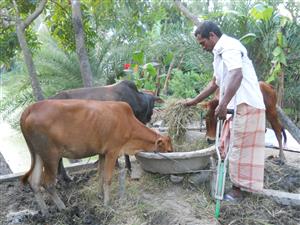
Initiating microfinancing and micro-enterprises for a whole city sub-district
In 2015, YPSA surveyed 1,250 persons with disabilities in Sitakund and organized them into 50 self-help groups. Based on their socio-economic background and personal interest, 250 persons were selected to receive interest-free loans, vocational training as well as support to establish their own businesses.
YPSA - Young Power in Social Action, Sitakund sub-district of Chittagong, Bangladesh -
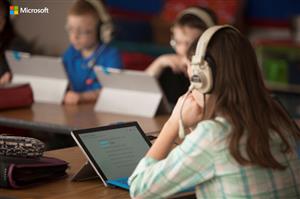
A comprehensive strategy to make Office 365 fully accessible
To simplify the utilization for persons with disabilities, Microsoft 365 has been made accessible by including accessible templates, built-in learning tools, intelligent suggestions for image alt-text and an accessibility checker. Office 365 is available for home, business, enterprise and education use including free versions for students and teachers.
Microsoft Corporation, Office 365, United States of America -
Vocational training leading directly to jobs in the open labour market
The project provides a 45-day vocational training and a one-week traineeship for young people with disabilities living in rural areas. The training was designed in cooperation with companies and future employers. The project also collaborates with stakeholders like Government, Communities, etc., to create inclusive working places.
Youth4Jobs Foundation, India -
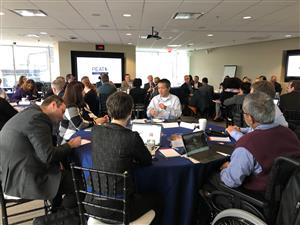
A cross-sector partnership promoting accessible technology in employment
PEAT fosters cooperation among key technology leaders, stakeholders, and government agencies to make new technologies accessible. From 2013 to 2020 the website has had more than a half-million visits, and more than 200 companies use PEAT’s TechCheck benchmarking assessment.
US Department of Labor, ODEP - Office of Disability Employment Policy, Partnership on Employment and Accessible Technology (PEAT), United States of America -
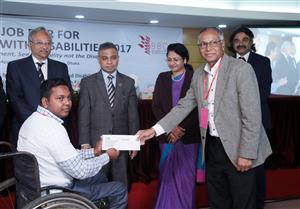
Job fairs organized by the Disability Network
Bangladesh Business & Disability Network was founded in 2017 by employers with the aim of creating a more disability inclusive workforce in Bangladesh. As of 2020 four job fairs for people with disabilities have been organized nationwide, resulting in more than 350 job placements with a retention rate of 80 per cent.
BBDN - Bangladesh Business & Disability Network, Establishment of a Business and Disability Network to Facilitate Employment, Bangladesh -
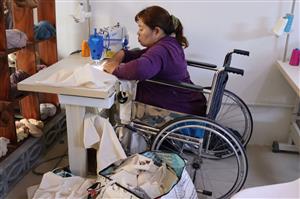
Training job coaches to support jobseekers with disabilities and employers
Since 2018 the Accessible Employment project has been training people with and without disabilities in Cambodia as job coaches, who then support jobseekers while also working with employers. In 2019 there were ten trained job coaches, and 54 people with disabilities had gained employment.
Light for the World Cambodia, Accessible Employment, Cambodia